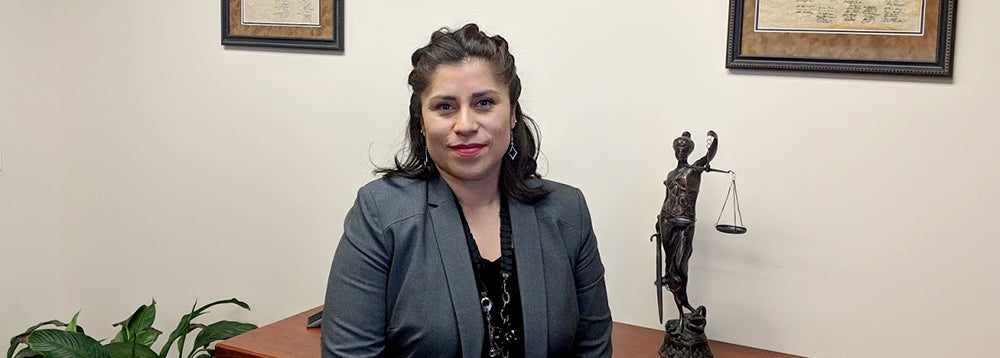
A High Level of Sacrifice and Service
Joana Torres Fonseca, Victim Witness Coordinator
Navigating the court process during a time of emotional distress can be a confusing and frightening experience for victims of crime, many of whom may suffer from severe trauma. As a Victim Witness Coordinator, Joana Torres Fonseca helps inform and guide victims and witnesses through the court process.
Victim Witness Coordinators serve as a liaison between a crime victim and the assigned prosecuting attorney, informing victims of court decisions, developments and related information while relaying victim concerns and wishes to the attorney. They also communicate to the victim their rights and prepare victims and witnesses to testify at court hearings. In addition, Victim Witness Coordinators provide support and referrals to local services such as shelters and counseling services.
Torres Fonseca, who spent her childhood in Mexico and American Falls, Idaho, compares the challenge of being a victim in the legal system to that of living in a foreign country. “Having to navigate the court process during a time of hardship and emotional distress has to be one of the most difficult, foreign, and frightening moments for any victim,” she said. With a current client load of well over 100 victims and witnesses, her job can be demanding and emotionally exhausting, but it’s a challenge she embraces. “Growing up, I always had a desire to work in a career where I could help people,” she said.
Torres Fonseca “fell in love” with Boise and Boise State during a visit and decided to major in Criminal Justice early in her academic career. Her Criminal Justice degree prepared her for her career by providing foundational knowledge in theory of crime, criminal procedures, court proceedings, and law enforcement activities. It also helped instill a greater sense of public service by exposing her to different institutions and professionals.
She notes that a Boise State student internship with the Legal Department at the Idaho Department of Corrections was particularly useful in preparing her for her career. At the Department of Corrections, she assisted attorneys by writing legal documents and assisting in preparation for court proceedings or responses to complaints. She also credits Criminal Justice professors, Dr. Tony Walsh and Dr. Lisa Bostaph in particular, with “guiding and challenging” her as her academic career transitioned into a professional one.
Torres Fonseca encourages current Criminal Justice students to fully engage in the learning process by seeking out and connecting with current Criminal Justice professionals in the community and participating in professional opportunities. But she also reminds students that “any career within Criminal Justice field requires a high level of sacrifice and service to the community and the citizens we serve.”
“The most inspiring aspect of my job as a Victim Witness Coordinator,” she said, “is working with strong and brave victims who having experienced difficult moments and emotional hardships and who turn terrible situations into ones filled with aspirations, healing and hope.”